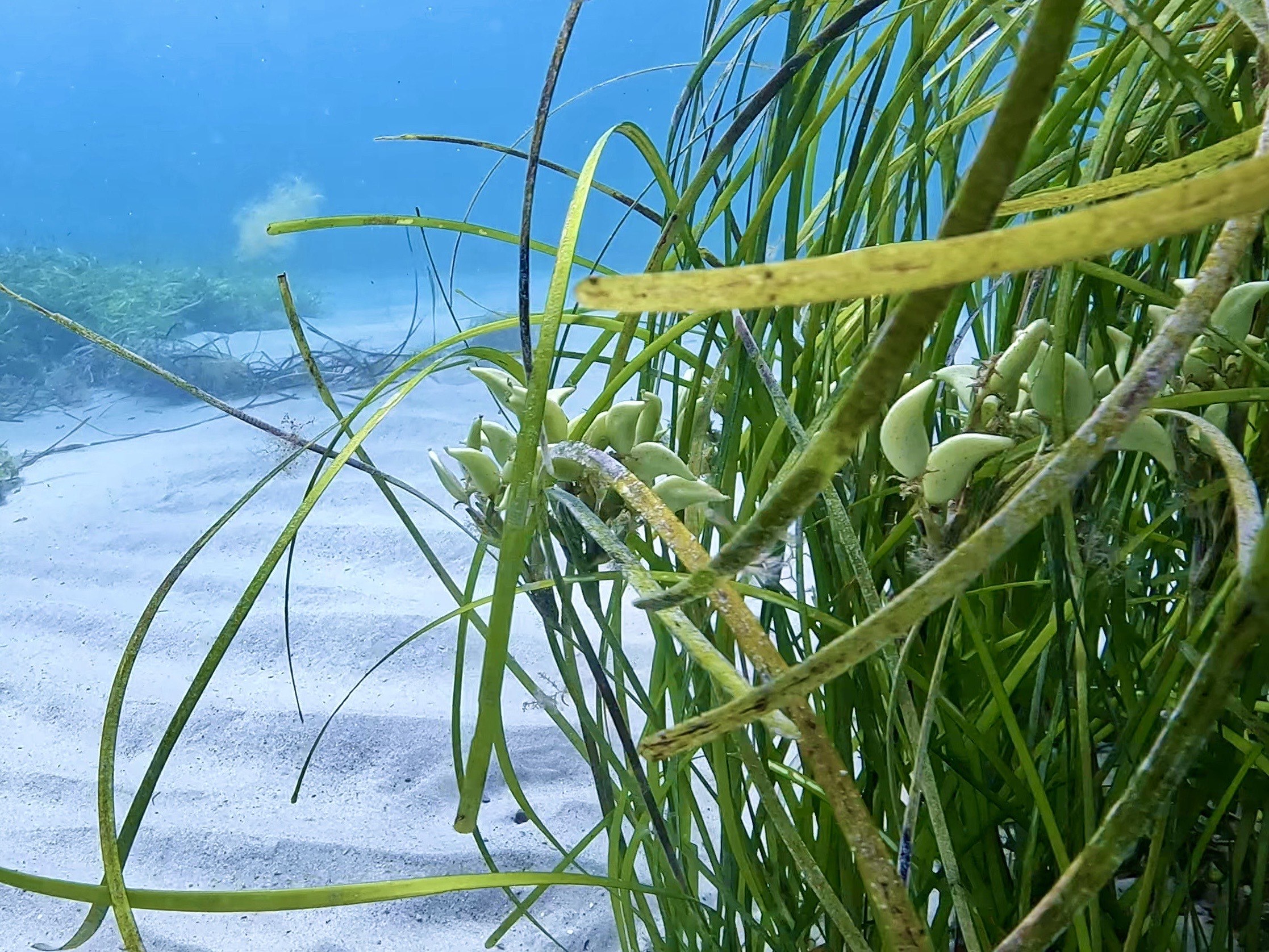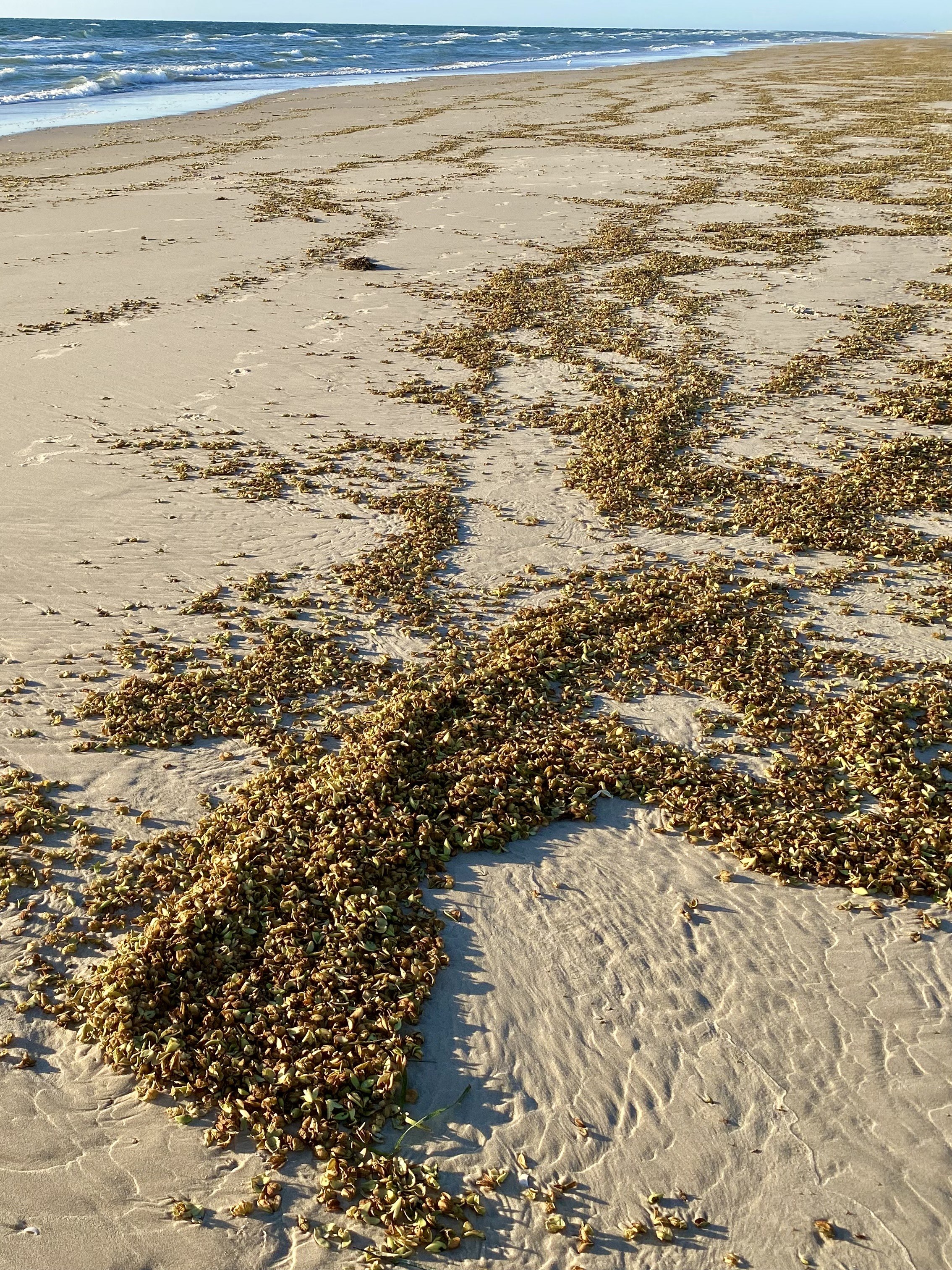
Discover the seeds that wash up on the beach
Over summer you might notice a lot of marine plants and seeds washed up along the coastline. These are the flowers and seeds of seagrass, which play a crucial role in the biodiversity and health of South Australia’s coastal waters.
What role to seagrasses play?
South Australia is home to some of the largest temperate seagrass beds in the world.
They provide a nursery for fish and other marine creatures, contribute to water quality by trapping sediments, and help protect shorelines from erosion. Furthermore, seagrass meadows serve as vital carbon sinks, capturing carbon dioxide and mitigating the impacts of climate change impacts.
Seagrass flowers are a food source for fish and crustaceans. Once pollinated, seagrass flowers produce seeds, which are critical for the regeneration of meadows. These seeds can float to new areas or settle in the sand to grow into new plants, helping sustain seagrass meadows over time.

What’s happening to increase seagrass meadows?
Large areas of Australia’s seagrass meadows have disappeared in recent decades, and efforts have been taking place to restore them around the country, including South Australia.
One example is the Seagrass for Snapper project in the Fleurieu Peninsula region. Since 2020, volunteers have been collecting seeds along the shoreline to redisperse and regenerate seagrass meadows.
Can I help?
Yes you can — This summer, the Seeds for Snapper initiative invites you to participate in a citizen science project and share photos of your seagrass flower and seed sightings.
So next time you go for a beach walk, take note of what you see on the beach – it might be the seed to the future of our coastal ecosystems.
Header image: courtesy of Andrew Burnell
